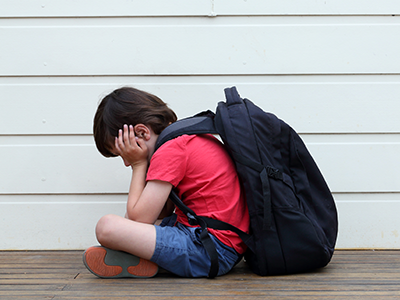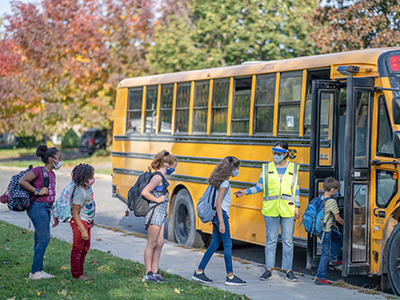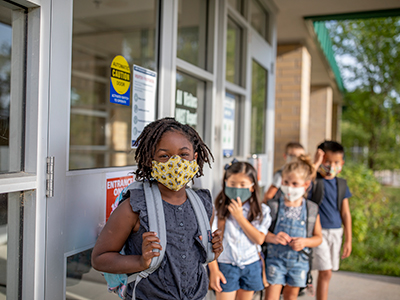School is one of the most important parts of being a child. It is the place you learn, make friends and prepare for your future. Attending or returning to school can be difficult for kids with acute illnesses. But there are strategies that parents and caregivers can use to help facilitate returning to school after an acute illness.
Before returning to school
If your child has missed a lot of school due to illness, it can be helpful to talk about the transition before it happens.
- Allow them to share their thoughts and feelings. Listen for things they might feel nervous about. Empathize and show acceptance of their feelings.
- It is likely classmates will ask them questions about where they were, any physical changes or their illness.
- As a family, decide how much you wish to share with others.
- Help your child come up with answers to questions other kids might ask and role-play these questions at home.
- Remind them of when they attended school in the past.
- Schedule play dates with friends from school so that they are reminded of familiar faces and look forward to seeing these friends at school.
Returning to school
If your child has been out of school for a long time, they may feel stressed or nervous about their return. Your child might not be used to being around so many people and noises or needing to sit still and pay attention for such a long time.
- If you’re noticing your child is particularly nervous about going back, consider working with the school counselor, as some kids find it helpful to go back to school for a half day before going the full day.
- Identify a place or person’s office where your child can go to take breaks. The nurse or counselor offices are examples.
- If it has been a particularly long time away from school, scheduling a special dinner or after school celebration will help reinforce attendance.
If your child is experiencing more difficulties than you expect and/or the above strategies are not effective, it might be helpful to both work in coordination with the school counselor and also consider working with a psychologist to better help your child transition.
 https://riseandshine.childrensnational.org/wp-content/uploads/2025/08/epi-pens-feature.jpg
300
400
Danielle Robbins
https://riseandshine.childrensnational.org/wp-content/uploads/2017/11/childrens_riseandshine_logo.jpg
Danielle Robbins2025-08-26 12:24:232025-08-26 16:12:43Back-to-school safety tips for kids with food allergies
https://riseandshine.childrensnational.org/wp-content/uploads/2025/08/epi-pens-feature.jpg
300
400
Danielle Robbins
https://riseandshine.childrensnational.org/wp-content/uploads/2017/11/childrens_riseandshine_logo.jpg
Danielle Robbins2025-08-26 12:24:232025-08-26 16:12:43Back-to-school safety tips for kids with food allergies





















Leave a Comment
Want to join the discussion?Feel free to contribute!